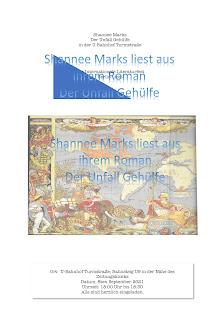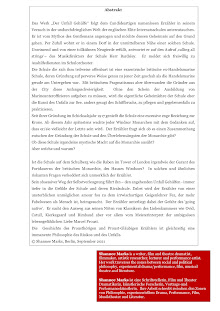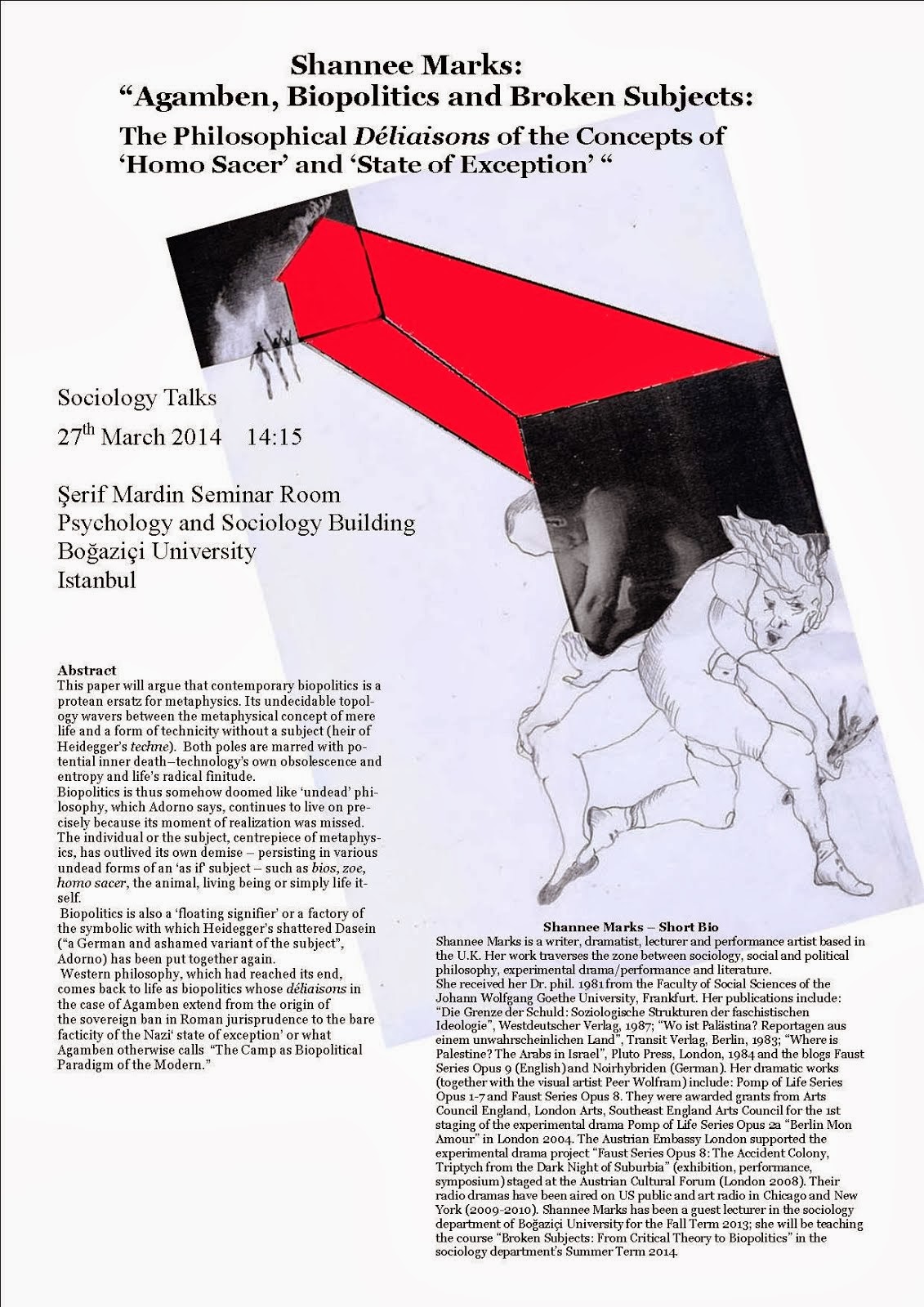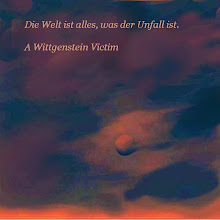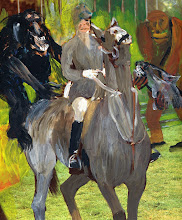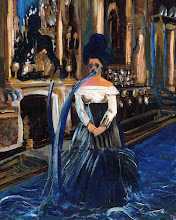The ecstatic function of language refers to language as the revelation of God (Offenbarung). The acquisition of the dark knowledge of how things come to be and the signification of these things in the universal language of the cosmos are the major branches of the wisdom gained from the tree of knowledge.
Benjamin’s consistent fascination with the quasi-theological or “profane mystical” experience reflects his reception of this concept of wisdom. The light coming from within, not a sensual emanation of things, “the rhythm of the messianic nature” (Theological-political Fragment): a thought, which appealed to Benjamin’s idiosyncratic reading of Kant – especially of Kant’s ‘radical’ concept of experience. Language is the existence-form of the sacred for this tradition; not an agent of desacralization (Habermas). Language holds the individual in the suspension between heaven and earth - a fleeting and opaque unity with the divine. Revelation is the one-sided reception of the divine emanation. One must be empty of meaning in order to be filled by divine substance - the incantation of words (like the repeating of the Ave Maria along the beads of the rosary), or hypnotic movement such as the Dervish dance are an emptying out of meaning and intention. Language is not communicative rather hypnotic. One anticipates Illumination and not Enlightenment – here Benjamin is closest to Jacob Böhme’s ‘language of nature’ and far from Kant. Knowledge is the initiation into the proximity to the natural and divine mysteries, the realm of the allegory, the symbol, ‘signatures of the universe’. Benjamin touches upon this experience with his notion of “Rausch” (intoxication, trance, frenzy, hypnotic absence, furore), “profane Erleuchtung” (profane illumination) as the “neutralisation of the division/separation between subject and object”. Rausch is the form in which the ancient world experienced the cosmos – it has nearly disappeared – since astronomy substituted the ‘eye of God’, the exclusively optical bond (Verbundenheit) to outer space (Weltall). In Benjamin’s Einbahnstraße, described by Bloch as a surrealist “Revue-form in Philosophy” (1928) – the final chapter Zum Planetarium is a Rausch-manifesto. “Rausch is the experience, through which alone we can be certain of the closest and furthest away, and never the one without the other.”
The illuminative Rausch - beyond the customary epistemological division into subject and object - establishes Totality or revolutionary Jetztzeit (Now-Time). Contrary to those who think now, cosmic Rausch is not the solitary delirium of the individual in “starry nights” – such communication is only possible in the “community” – just as our flight through life is never just ours – but always a spectacle in borrowed lights looked on by strangers. Knowledge exists here without an object of nothing - the something - necessary for mere earthly wisdom. Illumination is the immediate yet atemporal perception of an ‘object’ exceeding the referential relations of language. The holy tongues are barriers against the idle wayfarer - the path of illumination is the acquisition of this secret art.
© Shannee Marks, July 2012
